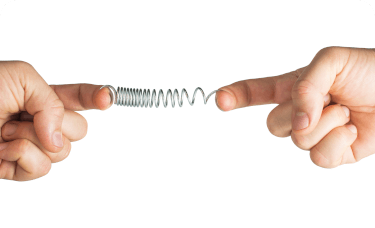As if stress weren’t bad enough on its own, it can both trigger and worsen headaches.
Modern life is stressful and, unfortunately, that doesn’t seem likely to change any time soon. From the moment your alarm clock jolts you out of bed until you’re finally done for the day, you are likely to experience some amount of stress. This can manifest psychologically, like anxiety or physically, like eye and neck strain from sitting at a computer. While a little stress is tolerable, too much can have damaging health effects.1 Many ailments can be attributed to the mental and physiological pressures we’re under, ranging from fatigue to stomach upset to sleep problems. Top of the list? That nagging headache.2
Can stress really cause headaches?
Yes. In fact, stress is a central cause of many headaches.
Whether it’s due to an over-packed to-do list, a demanding job, personal issues or a growing pile of bills, stress is a likely cause behind the most common type of headache – the tension headache (which aptly goes by the nickname ‘stress headache’).
What exactly is a stress headache?
You have likely experienced many different types of headaches – which can range from sinus to migraines. So, how can you tell if your headache may be caused by stress? Tension or stress headache symptoms tend to follow a pattern:3
- A stress headache will normally be a mild or moderately painful dull ache.
- Stress headache pain will often feel like a tight band around your head
- Your scalp, neck and shoulders may also feel sore or tender. Stress headaches can be either episodic (short-lasting and occurring less than 15 days per month) or chronic (blending together and occurring 15 or more days per month).
- Unlike migraines, stress headaches aren’t typically aggravated by light, sound or physical activity.
Call your doctor if your headache gets worse, or if you develop other symptoms – including vision problems, dizziness or a stiff neck. While stress headaches are very common, your headache may be a symptom of another condition.









